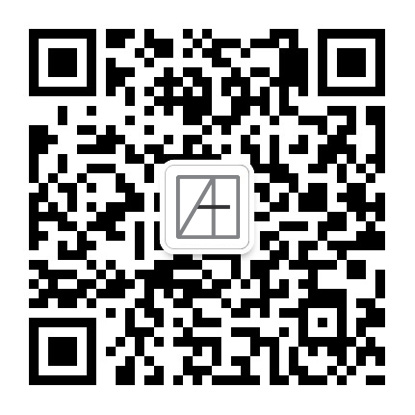
Scan our QR code to stay updated with the recent news and upcoming events.
2025.1.9 - 2025.2.28
Room 303, 955 Nansuzhou Lu, Huangpu District
Micro History - Hu Weiqi's latest solo exhibition presents an intimate exploration of historical narratives through a distinctive lens. Moving beyond conventional grand narratives, Hu delves into the overlooked details that shape our understanding of history. The exhibition's cornerstone series, Mosquitoes Everywhere in the Gaps of History, ingeniously employs the mosquito as a metaphor for examining historical events and cultural transformations.
Drawing inspiration from Xi Chuan's Mosquito Chronicles, Hu transforms this seemingly insignificant insect into a powerful symbol of historical witness. Through this unexpected perspective, he reveals how even the smallest entities can illuminate broader historical patterns and social changes.
The exhibition's central work, Peony, masterfully captures the tension between individuality and collective existence. Using a bird's-eye perspective, Hu creates a compelling social tableau where human figures and flowers coexist in meaningful isolation. The traditional symbol of the peony takes on new significance, reflecting contemporary alienation and the challenges of community formation.
In Love Is Too Ideal, Reality Too Tempting, Hu confronts traditional symbolism with contemporary reality. The work's layered composition of dragons and phoenixes, combined with mechanical processing techniques, creates a powerful commentary on the relationship between cultural ideals and individual experience. The artist's innovative use of hospital-wall green and faint inscriptions adds a poignant dimension to this exploration of personal existence within larger social frameworks.
Hu's artistic language demonstrates a sophisticated dialogue with art historical precedents, from Rauschenberg's erasure techniques to Grosz's social critique. Yet his vision remains distinctly contemporary, offering fresh insights into the complexities of modern society. Through meticulous attention to detail and thoughtful deconstruction of grand narratives, Micro History invites viewers to reconsider their understanding of historical truth and individual experience.
Curator: Zhuang Zirui
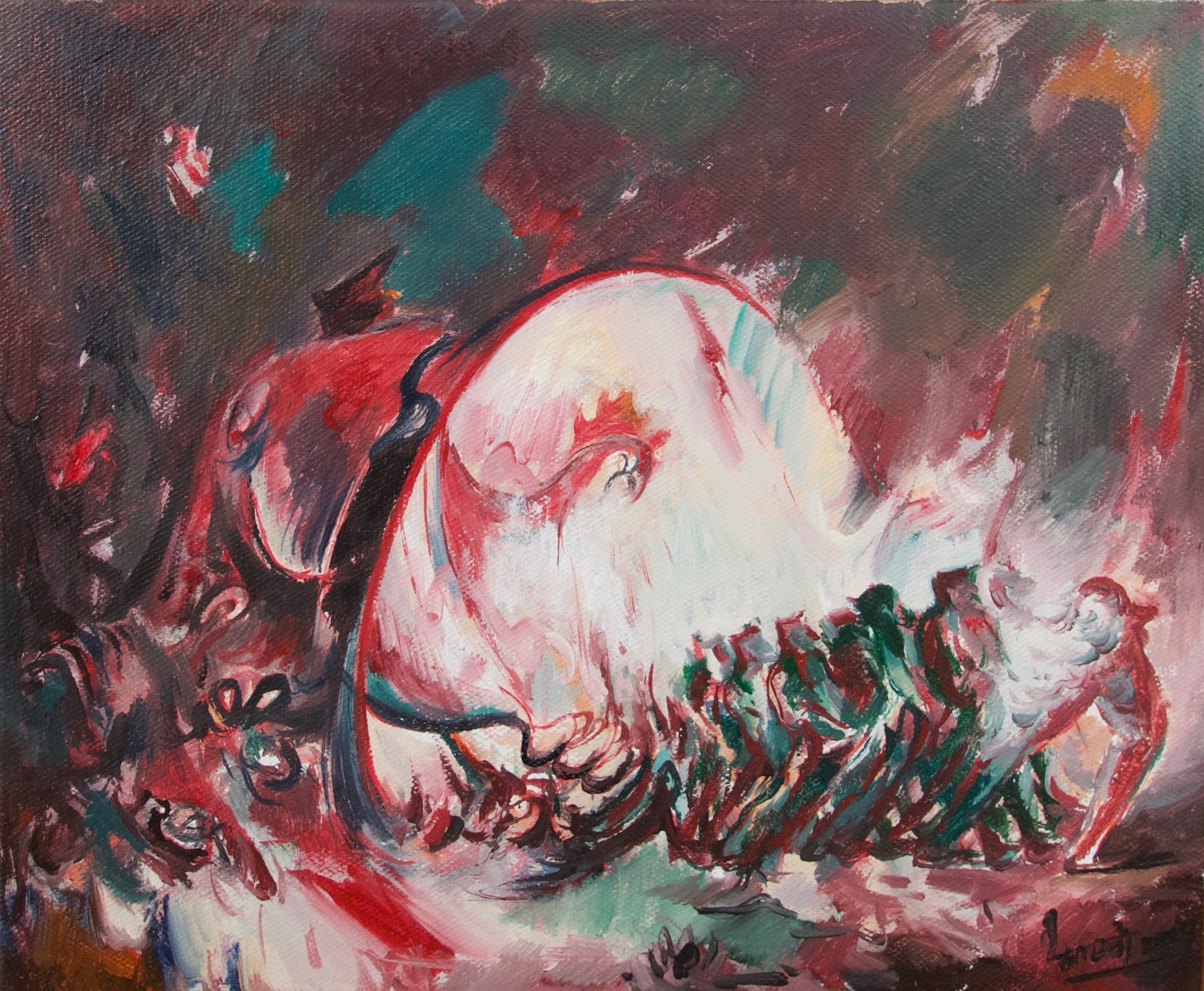
Mosquitoes Everywhere in the Gaps of History No.16, 在历史的缝隙间到处是蚊子No.16, 40x30cm, 布面油画, Oil on Canvas, 2024
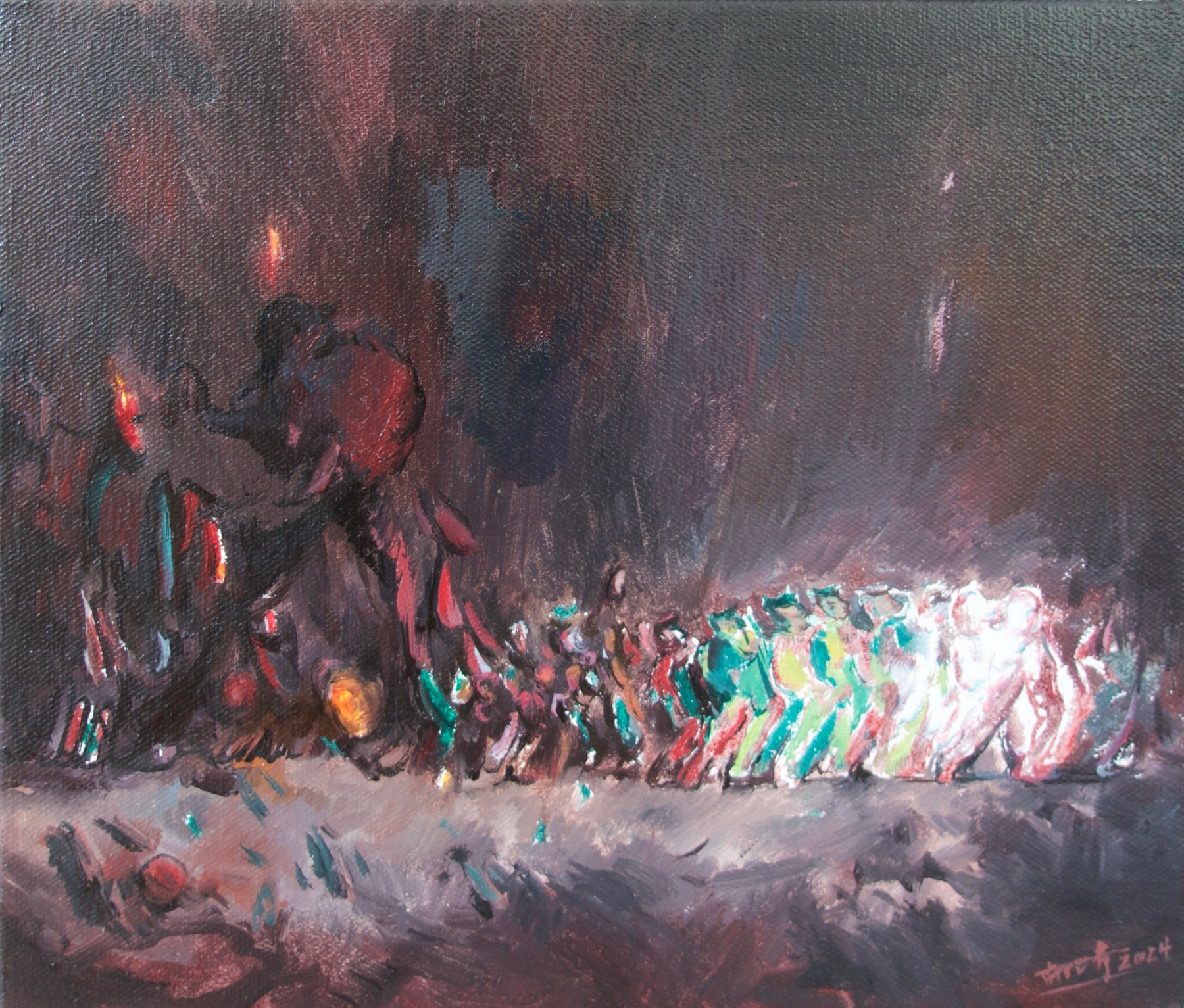
Mosquitoes Everywhere in the Gaps of History No.15, 在历史的缝隙间到处是蚊子 No.15, 40x30cm,布面油画, Oil on Canvas, 2024
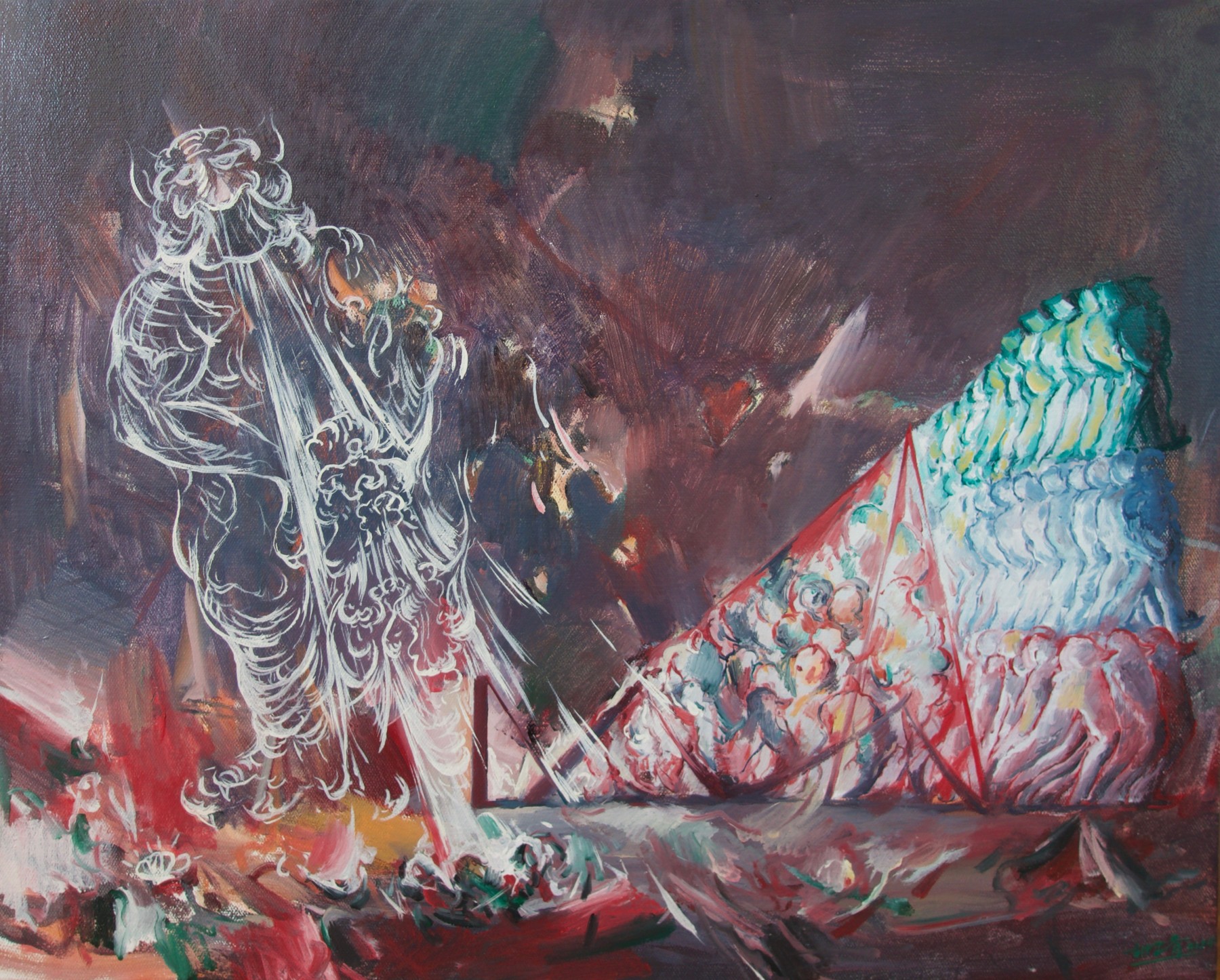
Mosquitoes Everywhere in the Gaps of History No.14, 在历史的缝隙间到处是蚊子No.14, 70x60cm,布面油画, Oil on Canvas, 2024
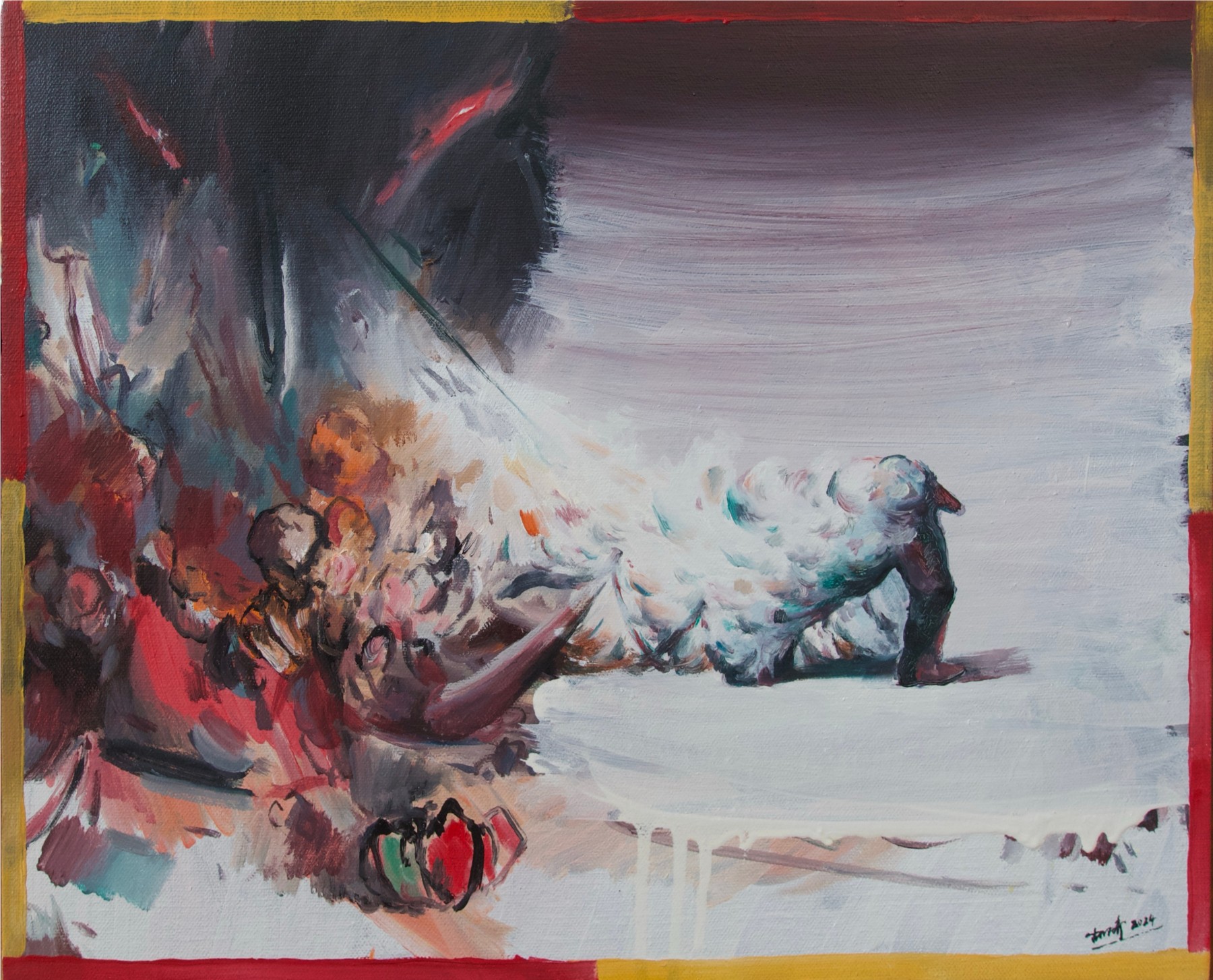
Mosquitoes Everywhere in the Gaps of History No.11, 在历史的缝隙间到处是蚊子No.11, 50x40cm, Oil on Canvas布面油画, 2024
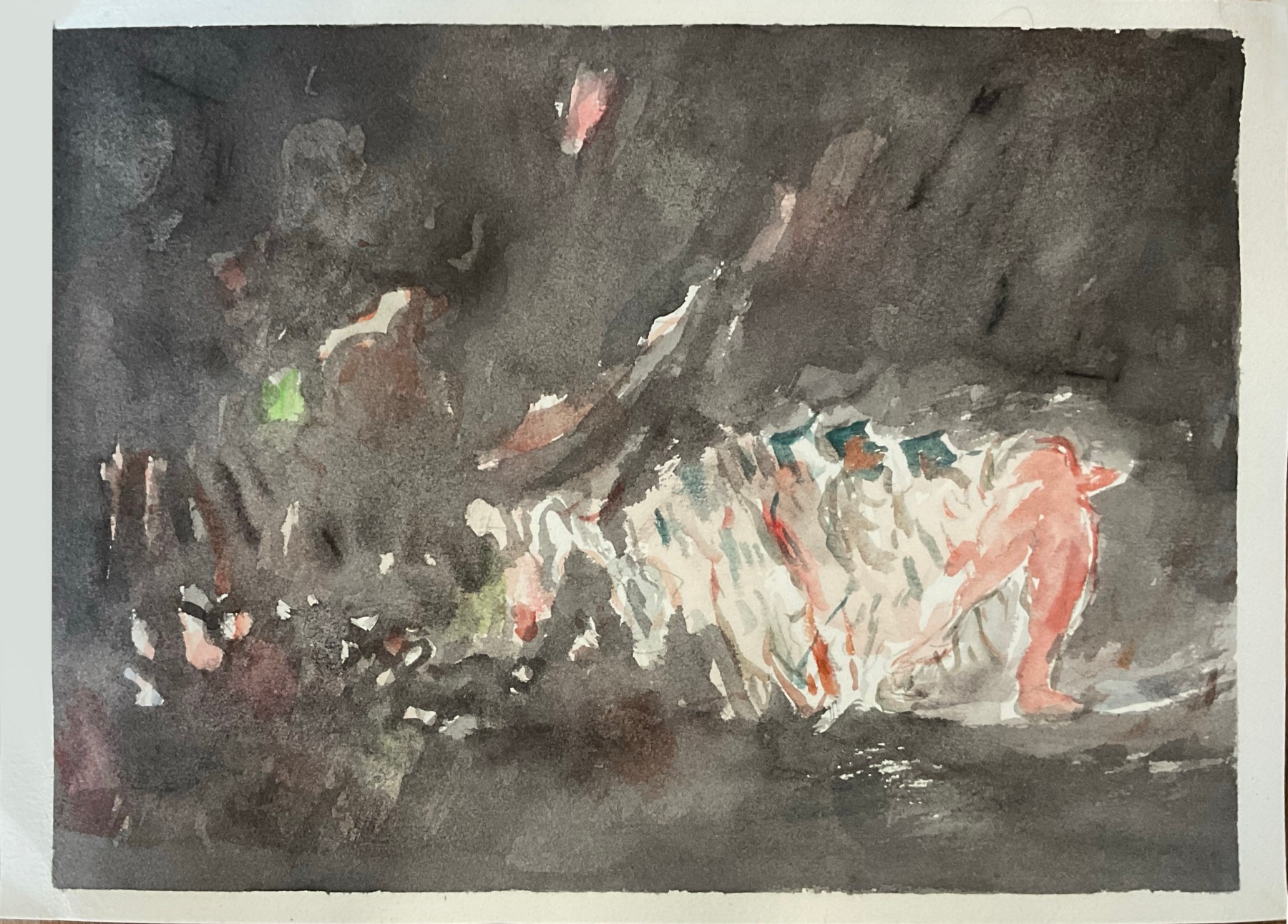
Mosquitoes Everywhere in the Gaps of History No.7, 在历史的缝隙间到处是蚊子No.7, 26x18.5cm, Watercolour on Paper, 纸上水彩,2024
Micro History - Hu Weiqi's latest solo exhibition presents an intimate exploration of historical narratives through a distinctive lens. Moving beyond conventional grand narratives, Hu delves into the overlooked details that shape our understanding of history. The exhibition's cornerstone series, Mosquitoes Everywhere in the Gaps of History, ingeniously employs the mosquito as a metaphor for examining historical events and cultural transformations.
Drawing inspiration from Xi Chuan's Mosquito Chronicles, Hu transforms this seemingly insignificant insect into a powerful symbol of historical witness. Through this unexpected perspective, he reveals how even the smallest entities can illuminate broader historical patterns and social changes.
The exhibition's central work, Peony, masterfully captures the tension between individuality and collective existence. Using a bird's-eye perspective, Hu creates a compelling social tableau where human figures and flowers coexist in meaningful isolation. The traditional symbol of the peony takes on new significance, reflecting contemporary alienation and the challenges of community formation.
In Love Is Too Ideal, Reality Too Tempting, Hu confronts traditional symbolism with contemporary reality. The work's layered composition of dragons and phoenixes, combined with mechanical processing techniques, creates a powerful commentary on the relationship between cultural ideals and individual experience. The artist's innovative use of hospital-wall green and faint inscriptions adds a poignant dimension to this exploration of personal existence within larger social frameworks.
Hu's artistic language demonstrates a sophisticated dialogue with art historical precedents, from Rauschenberg's erasure techniques to Grosz's social critique. Yet his vision remains distinctly contemporary, offering fresh insights into the complexities of modern society. Through meticulous attention to detail and thoughtful deconstruction of grand narratives, Micro History invites viewers to reconsider their understanding of historical truth and individual experience.
Curator: Zhuang Zirui